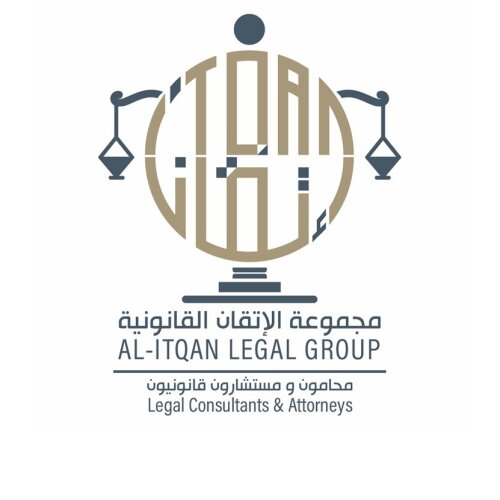Best Fintech Lawyers in Kuwait
Share your needs with us, get contacted by law firms.
Free. Takes 2 min.
Or refine your search by selecting a city:
List of the best lawyers in Kuwait
About Fintech Law in Kuwait
Fintech, or financial technology, refers to the integration of technology into financial services to enhance or automate financial processes. In Kuwait, the fintech ecosystem is rapidly evolving, driven by an emphasis on modernization and innovation. The Kuwaiti government and its regulatory bodies have shown interest in facilitating growth in the fintech sector while ensuring that consumer protection and data security are upheld. Various technologies such as blockchain, mobile payments, and digital banking are gaining traction in the country, making it essential to understand the legal landscape that governs fintech activities.
Why You May Need a Lawyer
Fintech is a complex and highly regulated sector where legal assistance can be crucial. You may need a lawyer in cases such as:
- Starting a fintech company and needing guidance on compliance with local regulations.
- Handling data privacy issues as fintech businesses often deal with sensitive customer information.
- Resolving disputes related to fintech transactions or services.
- Navigating regulatory changes affecting fintech operations.
- Intellectual property issues concerning new technologies or software.
Local Laws Overview
Kuwait's fintech space is primarily governed by the Central Bank of Kuwait (CBK) and the Capital Markets Authority (CMA). Key legal aspects include:
- Licensing and Registration: Fintech companies must register with appropriate authorities, ensuring compliance with financial regulations and anti-money laundering laws.
- Data Protection: Laws are in place to protect consumer data, reflecting global standards and requiring businesses to implement robust data security measures.
- Consumer Protection: Regulations aim to protect consumer rights in digital financial services, emphasizing transparency and fair practices.
- Digital Payments: Guidelines regulate digital wallets and payment systems, ensuring secure transactions.
Frequently Asked Questions
What is the role of the Central Bank of Kuwait in fintech regulation?
The Central Bank of Kuwait regulates financial institutions and activities, setting standards for data security, consumer protection, and financial stability in the fintech sector.
Do I need a license to start a fintech business in Kuwait?
Yes, obtaining the necessary licenses is crucial to operate legally and adhere to local regulatory requirements in Kuwait.
How does Kuwait ensure data protection in fintech?
Data protection laws in Kuwait require fintech companies to implement security measures protecting user data and complying with confidentiality standards.
What are the anti-money laundering requirements for fintech companies?
Fintech companies must implement procedures to monitor transactions and report suspicious activities in line with anti-money laundering (AML) regulations.
Are cryptocurrencies legal in Kuwait?
The regulatory framework around cryptocurrencies in Kuwait is evolving, and while trading is not officially banned, it operates in a legally gray area with scrutiny from authorities.
Can foreign companies provide fintech services in Kuwait?
Yes, but they must comply with local regulations and may need to partner with local entities or obtain appropriate licenses.
How are fintech disputes resolved in Kuwait?
Disputes can be resolved through negotiation, arbitration, or through the court system depending on the nature and terms of the dispute contract.
What consumer protections exist for fintech services?
Kuwaiti laws mandate transparency, error resolution rights, and protections against fraud for consumers using fintech services.
Can fintech companies offer lending services in Kuwait?
Fintech companies can offer lending services but need to adhere to regulations pertaining to lending practices and interest rates set by the Central Bank.
What is the impact of Sharia law on fintech in Kuwait?
Fintech products and services must be compliant with Sharia law, particularly for Islamic finance products, ensuring that they do not involve interest (riba) or excessive risk (gharar).
Additional Resources
For those seeking more information, the following resources and organizations can provide valuable insights:
- Central Bank of Kuwait (CBK): Offers guidance on regulatory requirements and compliance for fintech businesses.
- Capital Markets Authority (CMA): Regulates capital markets, including fintech start-ups dealing in digital assets.
- Ministry of Commerce and Industry: Assists with company registration and business operations regulations.
- Kuwait Finance House (KFH): Provides Islamic financial services and expertise in fintech applications in finance.
Next Steps
If you require legal assistance in the fintech sector, consider the following steps:
- Identify specific areas where legal advice is needed, such as compliance, data protection, or contract negotiation.
- Seek consultation from a lawyer specialized in fintech law, focusing on their experience and understanding of local regulations.
- Prepare necessary documentation, such as business plans, contracts, and relevant correspondence, to facilitate a detailed legal review.
- Stay informed about changes in regulations by following updates from regulatory bodies like the CBK and CMA.
Lawzana helps you find the best lawyers and law firms in Kuwait through a curated and pre-screened list of qualified legal professionals. Our platform offers rankings and detailed profiles of attorneys and law firms, allowing you to compare based on practice areas, including Fintech, experience, and client feedback.
Each profile includes a description of the firm's areas of practice, client reviews, team members and partners, year of establishment, spoken languages, office locations, contact information, social media presence, and any published articles or resources. Most firms on our platform speak English and are experienced in both local and international legal matters.
Get a quote from top-rated law firms in Kuwait — quickly, securely, and without unnecessary hassle.
Disclaimer:
The information provided on this page is for general informational purposes only and does not constitute legal advice. While we strive to ensure the accuracy and relevance of the content, legal information may change over time, and interpretations of the law can vary. You should always consult with a qualified legal professional for advice specific to your situation.
We disclaim all liability for actions taken or not taken based on the content of this page. If you believe any information is incorrect or outdated, please contact us, and we will review and update it where appropriate.
Browse fintech law firms by city in Kuwait
Refine your search by selecting a city.











